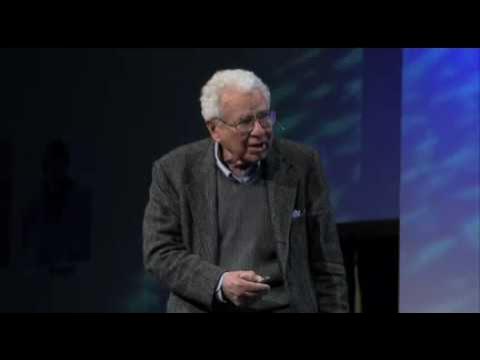Copyrighting all the melodies to avoid accidental infringement | Damien Riehl | TEDxMinneapolis
Summary
TLDRIn this thought-provoking talk, the speaker explores the complex interplay between music copyright and creativity, emphasizing the limitations imposed by existing copyright laws on songwriters. Through compelling anecdotes, including the case of George Harrison, the speaker illustrates the challenges of originality in a finite melodic landscape. A collaboration with Noah Rubin introduces a groundbreaking algorithm to catalog melodies, highlighting the urgent need for reform. The speaker advocates for placing melodies in the public domain to foster artistic freedom and innovation, ultimately calling for a supportive environment that nurtures the creative spirit in music for future generations.
Takeaways
- 😀 The protagonist's story reflects the challenges musicians face regarding copyright infringement, particularly the concept of subconscious copying.
- 🎶 George Harrison's case illustrates the complexity of copyright laws in music, as he was sued for his song 'My Sweet Lord,' which bore similarities to 'He's So Fine' by The Chiffons.
- 🔍 The speaker argues that melodies may not be entirely original due to the finite nature of musical notes and arrangements available, making accidental similarities more likely.
- 🧠 The speaker emphasizes that the understanding of music should shift from viewing song creation as drawing from an empty canvas to recognizing the limitations imposed by existing melodies.
- ⚖️ Copyright law currently requires songwriters to avoid all previously written melodies to prevent infringement, leading to significant legal costs and uncertainty.
- 💻 The development of an algorithm to generate all possible melodies aims to identify and preserve open melodic spaces for future songwriters.
- 📊 With the increase in song uploads, the available melodies are diminishing rapidly, making it harder for songwriters to create without fear of infringement.
- 🛠️ The initiative aims to put previously created melodies into the public domain, thereby allowing more freedom for future musicians.
- 📝 Melodies are described as mathematical constructs, which raises questions about their copyrightability as mere facts rather than creative expressions.
- 😟 The current climate of copyright law creates a chilling effect on songwriters, leading to self-censorship and hesitation to create new music.
Q & A
What is the main argument presented by the speaker regarding melodies?
-The speaker argues that there is a finite number of melodies due to the limited number of notes in music, which creates challenges for songwriters regarding originality and copyright.
How does the speaker differentiate music from other forms of art?
-The speaker points out that while music has a finite range of melodies, other art forms like visual art and language have virtually limitless possibilities, allowing for more creative freedom.
What example does the speaker provide to illustrate copyright issues in music?
-The speaker references George Harrison's legal issues over the song 'My Sweet Lord,' which was found to be similar to the Chiffons' 'He's So Fine,' highlighting the complexities of copyright infringement.
What is the concept of subconscious copying mentioned by the speaker?
-Subconscious copying refers to the idea that songwriters may inadvertently create music similar to existing songs without being aware of it, complicating the determination of copyright infringement.
What is the speaker's proposed solution to the issues of copyright in music?
-The speaker proposes cataloging all possible melodies and placing them in the public domain to give songwriters more freedom to create without the fear of infringing on copyrights.
Why does the speaker believe current copyright laws create a chilling effect?
-The speaker believes that current copyright laws are outdated and can stifle creativity by making songwriters afraid of unintentional infringement, thus limiting their ability to innovate.
What shift does the speaker call for in the understanding of copyright?
-The speaker calls for a paradigm shift in how melodies and copyrights are approached, particularly regarding the burden of proof in copyright cases and the necessity for a more supportive legal framework for songwriters.
How does the speaker suggest judges and lawyers should change their approach to copyright cases?
-The speaker suggests that judges and lawyers should reconsider how they determine access to previous works in infringement cases, focusing on fairness and the realities of musical creativity.
What is the ultimate goal of the speaker's project?
-The ultimate goal of the project is to empower songwriters by allowing them to create freely, reducing the fear of unintentional copyright infringement and fostering greater creativity.
How does the speaker's perspective contribute to the broader conversation about creativity in the music industry?
-The speaker's perspective highlights the need for reform in copyright laws to support artists and encourage innovation, reflecting ongoing debates about balancing protection with creative freedom in the music industry.
Outlines

This section is available to paid users only. Please upgrade to access this part.
Upgrade NowMindmap

This section is available to paid users only. Please upgrade to access this part.
Upgrade NowKeywords

This section is available to paid users only. Please upgrade to access this part.
Upgrade NowHighlights

This section is available to paid users only. Please upgrade to access this part.
Upgrade NowTranscripts

This section is available to paid users only. Please upgrade to access this part.
Upgrade NowBrowse More Related Video

Ahmad Dhani: Mba Agnez Tolong Cari Konsultan Hukum yang S3 | AKAP tvOne

What is Copyright?

Murray Gell-Mann: Beauty and truth in physics

Adam Ruins Everything - How Mickey Mouse Destroyed the Public Domain

yapay zekânın yarattığı eserlerde telif hakları kime ait ?

UU Hak Cipta: Pembajakan Film Keluarga Cemara
5.0 / 5 (0 votes)